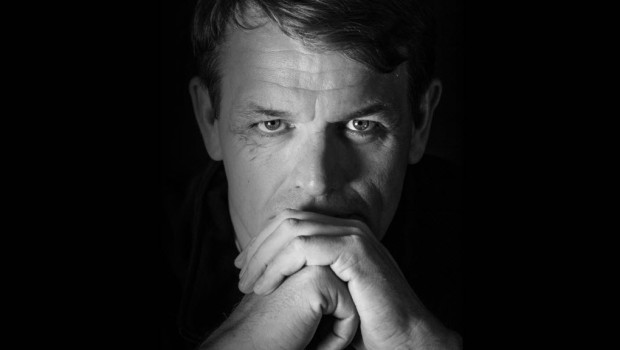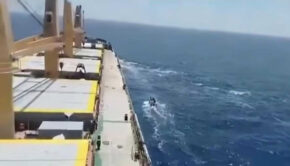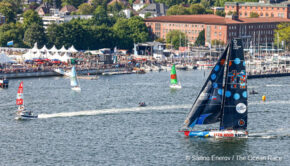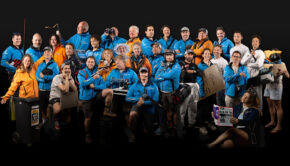Knut Frostad: Anticipating the future of the sport
Published on May 6th, 2015
Volvo Ocean Race CEO Knut Frostad tells Yacht Racing Forum about the commercial situation of the Volvo Ocean Race and – more generally – about the importance of having a clear vision for the future of the sport of sailing.
Knut Frostad, how is the Volvo Ocean Race doing from a commercial point of view?
We are in a better place than I feared we could be considering the state of the economy. A good illustration is the response from the venues, which has been positive. Alicante and South Africa witnessed a massive increase of engagement compared to the past, with more local sponsors and a very large public. China and the Middle-East were comparable to the last editions; New Zealand was great as usual. And finally we broke all records in Brazil!
The stopovers are much shorter than they used to be. Why is this?
They are meant to last approximately nine to fourteen days. Sailing events are often too long, which isn’t good for public and partners. It is better to concentrate the action. For example, we had 34,600 visitors per day on average in Alicante, during ten days. Three years ago, we had 13,000 over 23 days. It felt better this time, and the partners were happier.
It is also cheaper for your organisation and for the teams…
Yes, precisely. But it is harder for the crews, who have less time to recover.
Are you satisfied with the media coverage so far?
The results are improving. There’s been strong moments; obviously Vestas’ grounding reached a massive, non-sailing audience. Dongfeng also changed the game: they have a growing follow-up in China and they start to reach mainstream media. We started receiving partnerships requests from China, and this is obviously a new market opening up for everyone!
What is the event’s commercial value for the teams?
First of all, the investment is lower than it used to be – approximately 45% less! As for the media return, it is either similar or increasing compared to the last edition. We measure this precisely thanks to our partners Meltwater, Repucom and PwC. The interesting factor is that the current race leading team doesn’t lead the media coverage ranking. Dongfeng currently leads the media race, amongst others thanks to Mark Turner’s transparency policy. When they broke their mast, he was tweeting before we even had time to breathe…
How do you analyse the evolution of new media and social networks?
It’s fundamental. Facebook, for example, has become more important than our website. The live coverage is also successful as a digital product. The new technologies allow us to broadcast the arrivals and departures live without being constrained to a set broadcasting schedule. It is cheap to produce and very effective; we had 94,000 people following the arrival live in Cape Town; interesting by the way to note that the arrivals are the most popular shows. In general social and digital media offer a better opportunity for sailing as you don’t have to compete with mainstream sports the same way as on TV. You only have to make good quality and promote it.
And it doesn’t cost anything else than the production…
That’s right. Last time, our live coverage for traditional TV was expensive and with a disappointingly low audience. Now we control the production and we know the coverage in real time.
On a more general note, what is your perception of sailing as a sport, from a commercial point of view?
Sailing has a great potential and offers extraordinary opportunities. However, it is still conservative and old fashioned, with unadapted governing structures. Look at golf, for example: fifty years ago, sailing had the same reach. Then golf organized itself professionally, controlling the top of the sport whilst sailing did the contrary. As a result, golf is run very professionally today with a clear definition of what matters in the sport whilst sailing’s commercial entities are still hard to understand for an outsider.
Can you give some examples?
For example, you can create a new class and organise a world championship tomorrow; or the America’s Cup can change its boats from a day to the next… There are many other examples. The key for the sports’ commercial partners is certainty and visibility. Our sport doesn’t provide this and needs to improve
How can / should the sport evolve?
I strongly believe that we need a powerful governing body and clear rules for everyone as well as a very strong focus on what makes sailing unique. If the sport of sailing wants to move forward, its key actors need a forum to meet and exchange ideas. That’s why I think the Yacht Racing Forum is important: it is the one and unique opportunity to do this.
You have been a keen supporter of the Forum and already confirmed your participation at the next event…
Yes, because I strongly believe that we need to discuss the commercial side of the sport, out of the context of a competition. The world of sailing is moving fast. We need to look big, and anticipate the development of our sport!
Note: Interview was published after Brazilian stopover, while the fleet was on Leg 6 from Brazil to USA.









 We’ll keep your information safe.
We’ll keep your information safe.